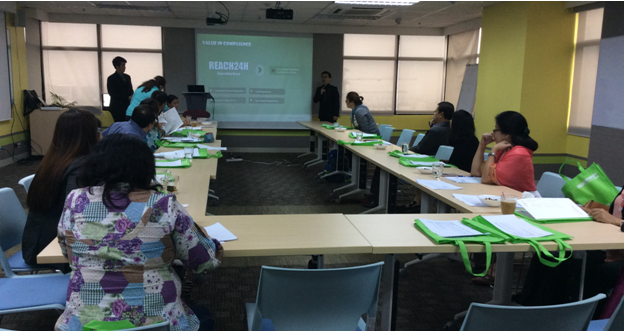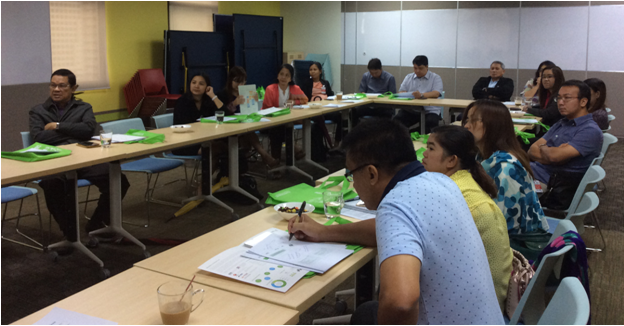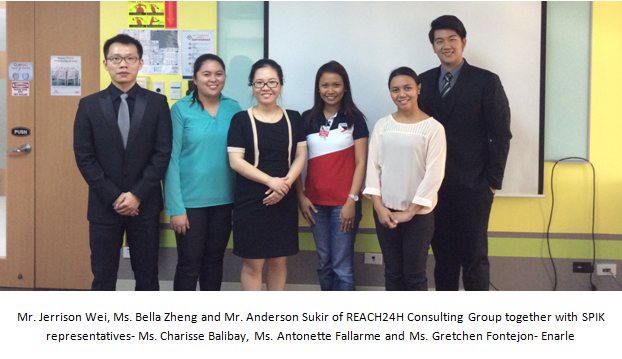
11 Nov REACH24H conducts seminar on International Chemical Regulations for SPIK Members
With the emerging chemical regulations worldwide, the need for awareness on these regulations is but a necessity. REACH24H Consulting Group of China partnered with SPIK for the half-day “mini-seminar” for SPIK Members on November 09, 2015 at the DuPont Conference Room.
Mr. Anderson Sukir provided an overview on the current chemical regulations in Taiwan including the chemical management under TCSCA and OSHA. Taiwan Toxic Chemical Substances Control Act (TCSCA) was first issued in November 1986. The latest amendment of TCSCA was published on December 11, 2013 by the Environmental Protection Administration (EPA) and had come into force as of December 11, 2014.

The K-REACH was presented by Mr. Jerrison Wei. The Act on Registration and Evaluation of Chemicals of Korea (K-REACH) was published on the 22nd of May 2013 and has just been recently implemented as of 1st of January 2015. It is regarded as the first REACH-style chemical regulation adopted in an Asian country. K-REACH manages new chemical substances, existing chemical substances and downstream products by prescribing the requirements for registration, hazard evaluation and risk assessment.
 Lastly, Ms. Bella Zheng gave an introduction on the Globally Harmonized System on Classification and Labelling of Chemicals or GHS. The final “Globally Harmonized System (GHS) for classification and labelling” standard was created at the 1992 Rio Conference on Environment and Development. The GHS was designed to replace all the diverse classification systems and present one universal standard which all countries should follow (however, the GHS is not compulsory under UN law). Over the years countries all over the world had update their own classification and labelling standard to match and follow the GHS to improve safe and health in work environment. This includes major countries in the Asia Pacific region.
Lastly, Ms. Bella Zheng gave an introduction on the Globally Harmonized System on Classification and Labelling of Chemicals or GHS. The final “Globally Harmonized System (GHS) for classification and labelling” standard was created at the 1992 Rio Conference on Environment and Development. The GHS was designed to replace all the diverse classification systems and present one universal standard which all countries should follow (however, the GHS is not compulsory under UN law). Over the years countries all over the world had update their own classification and labelling standard to match and follow the GHS to improve safe and health in work environment. This includes major countries in the Asia Pacific region.
